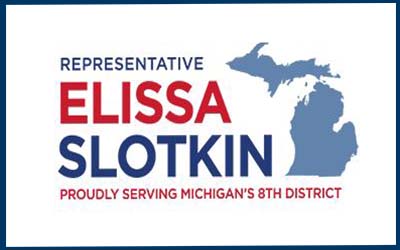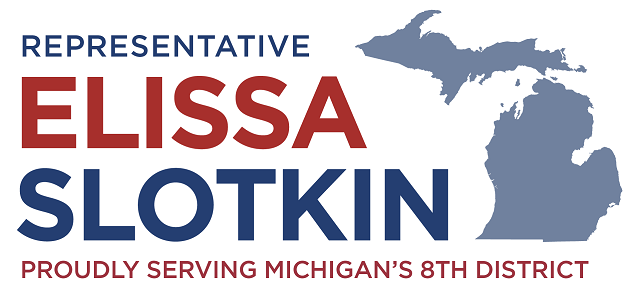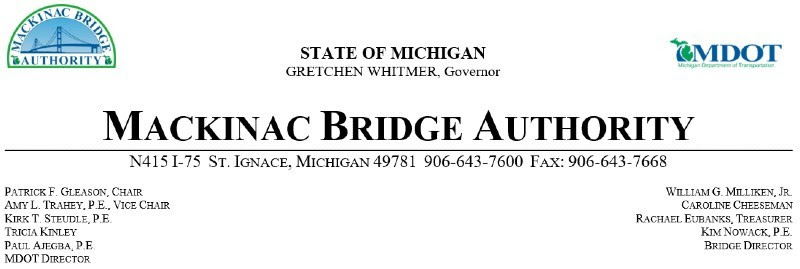
by Becky Andrus | Jun 20, 2022 | Regional News

Gov. Whitmer and Lt. Governor Gilchrist Sign Juneteenth Proclamation
Today marks the first time Juneteenth is recognized as a state holiday in Michigan
LANSING, Mich. — Today, Governor Gretchen Whitmer and Lieutenant Governor Garlin Gilchrist II issued a proclamation declaring June 19th as Juneteenth Celebration Day in Michigan. Juneteenth commemorates the day in 1865 when slavery was abolished in the United States.
“We are proud to celebrate Juneteenth as an official state holiday for the first time,” said Governor Whitmer. “Today presents an important opportunity to celebrate and elevate the stories of Black Americans as we continue to make record investments in communities of color. Since we took office, the lieutenant governor and I have prioritized building a state representative and responsive to the people we serve, addressing racial disparities and improving equity across Michigan. I am proud to declare June 19th as Juneteenth Celebration Day, and I am committed to working with anyone to build a more equitable and just state for all Michiganders.”
“Juneteenth marks a crucial day in our nation’s history to recognize the important progress we’ve made, while committing ourselves to the ongoing effort to center equity in all our work and make Michigan a place where every person can succeed,” said Lt. Governor Garlin Gilchrist II. “As the first Black lieutenant governor in our state, I’m building the policies and practices that will address and undo the damage racism and injustice has caused on our communities. That’s why we continue to invest in schools, job training, environmental justice, infrastructure and supporting businesses – all transformational investments and policies that celebrate, support and uplift communities of color. I am proud of the progress we’ve made thus far and will continue to work every day to make sure every all Michiganders have the support and opportunities they need.”
Juneteenth originated on June 19, 1865, when Union Army General Gordon Granger landed in Galveston, where he read General Order #3, stating that all slaves were free, and that former masters and slaves were absolutely equal in personal and property rights. Acting as the date of emancipation, June 19th also became a long-standing day of celebration, meant to honor African American resilience and the end of slavery.
Since they took office, Governor Whitmer and Lt. Governor Gilchrist have been committed to making Michigan a more equitable and just state. The governor assembled the most diverse cabinet in Michigan’s history to ensure that government is more representative of all Michiganders. More than 338 Black Michiganders have been appointed to boards, commissions and full-time positions, and 60% of appointees are women or people of color. The governor also appointed 12 Black Michiganders to the bench out of 41 judicial appointments. Under Executive Order 2020-163, the governor required implicit bias training for all state employees.
In response to COVID-19, Governor Whitmer established the Michigan Coronavirus Task Force on Racial Disparities by Executive Order 2020-55. The task force, which Lt. Governor Gilchrist chairs, has made real progress in bringing down the COVID disparity for Black Michiganders and has extended its work to tackling health disparities as a whole.
Additionally, Governor Whitmer signed Executive Order 2020-163, recognizing racism as a public health crisis and creating the Black Leadership Advisory Council. The Council is the first of its kind in Michigan to elevate Black leaders and representatives and take initial steps to address racism within state government.
Last year, Lt. Governor Gilchrist launched his ‘Making Real Change’ Tour across Michigan to highlight the administration’s continued efforts to flatten and eliminate racial disparities during the COVID-19 pandemic. The tour focused on what the state has learned to apply those lessons to equitably administering vaccines and building the resilience required to reduce racial disparities in health and other areas within communities.
Governor Whitmer made strides in police reforms when she called on the legislature to address racial disparities and strengthen relationships between law enforcement and communities of color. The governor also made Michigan a leader in transparency and accountability by developing a new web page to improve public access to information on the use of force and traffic stop data, department policies and training requirements.
View the full proclamation here.
|

by Becky Andrus | Jun 20, 2022 | Regional News
 |
|
|
| Hi there,
Some HUGE news for our veterans – the Senate has passed a bipartisan deal on a landmark package of legislation to finally, and comprehensively, address toxic exposure. The bill now heads to the President’s desk.
Sometimes, really important, landmark things do get done in Congress — and sometimes you get to share those moments with folks who are directly impacted. Thursday was one of those days.
As the roll was called, the Congresswoman was able to watch from the Senate gallery with Ryan Hart and his family, who are visiting D.C. from Springfield Township for the induction ceremony of his late father, Paul, to the Vietnam Veterans Memorial Honor Roll.
Paul Hart passed away two years ago from lung cancer that resulted from exposure to Agent Orange during his service. It took our government decades to finally acknowledge the damage Agent Orange did to our troops, and too many lives were lost as a result.
Now, the 9/11 generation of American veterans – including many Michiganders – are struggling with the long-term consequences of burn pits, and red tape at the VA is blocking them from getting the care they’re entitled to.
The Veterans Burn Pits Exposure Recognition Act, which Rep. Slotkin introduced with her Republican colleague and fellow Michigander Rep. Peter Meijer over a year ago, is part of the package. It cuts red tape to make it easier for veterans to get benefits and care, and the Congresswoman is thrilled it’s included in this package, which the House will soon send to the President’s desk.
The Veterans Burn Pits Exposure Recognition Act will:
- Eliminate the unreasonable requirement that veterans prove they were exposed to burn pits during their service;
- Formally recognize that veterans who served near burn pits were exposed to airborne hazards and toxins, potentially aiding thousands of veterans who otherwise do not have documentation of their exposure;
- And require the VA to conduct a full medical examination on veterans to determine a potential connection between an ailment and past toxic exposure.
Burn pits are the post-9/11 generation’s Agent Orange, and we need to support them not just with words, but with action.
– Office of Rep. Elissa Slotkin |

by Becky Andrus | Jun 16, 2022 | Environmental
MI Environment features upcoming Great Lakes beach walks
Journalists: We thought you might be interested in today’s MI Environment story that highlights  the eight upcoming Great Lakes beach walks in Michigan, hosted by the Michigan Department of Environment, Great Lakes, and Energy and the U.S. Army Corps of Engineers. the eight upcoming Great Lakes beach walks in Michigan, hosted by the Michigan Department of Environment, Great Lakes, and Energy and the U.S. Army Corps of Engineers.
The program’s goal is to increase coastal communities’ resilience — the ability to understand and use available resources to respond to, withstand, and recover from adverse situations.
The walks also will provide an opportunity to learn about the Michigan Coastal Management Program’s Pathway to Resilience and information on grant funding.
EGLE partners with Army Corps of Engineers for educational beach walks
Do you subscribe to MI Environment? Subscribe here to receive regular updates when new articles are posted and follow us on Twitter, LinkedIn, and Facebook. |

by Becky Andrus | Jun 16, 2022 | Transportation
FOR IMMEDIATE RELEASE MEDIA CONTACT
June 15, 2022 James Lake
906-250-0993
[email protected]
200 millionth vehicle crosses the Mackinac Bridge
Fast facts:
– At 6:18 p.m. on Wednesday, June 15, 2022, the Dalman family of Tawas City drove the 200 millionth vehicle across the Mackinac Bridge since its opening on Nov. 1, 1957.
– On Sept. 6, 2009, Richard Snyder of Clare, Michigan, drove the 150 millionth vehicle across the bridge.
ST. IGNACE, Mich. – It was a chance occurrence, but it still makes for a cool story.
After driving the 200 millionth vehicle across the Mackinac Bridge at 6:18 p.m. Wednesday, June 15, the Dalman family of Tawas City now has the bragging rights and the sole claim to this milestone. Kurt Dalman was driving, with passengers Anna Dalman, and their children, Seth and Teresa.
“We’re headed to Pictured Rocks. This will be the kids’ first big hike,” Anna Dalman said. “We were very surprised. We had no idea (this milestone was coming up).”
Mackinac Bridge Authority (MBA) Chairman Patrick “Shorty” Gleason, member Caroline Cheeseman, and MBA staff met the Dalmans outside on the toll plaza after they drove their 2021 Toyota Corolla hybrid through the booths, paying $4 cash in the northbound direction. They presented the family a framed print of the Mackinac Bridge, while Amy Millard, executive director of the Mackinaw City Chamber of Commerce, and Lora Brown, executive director of the St. Ignace Visitors Bureau, gave them a gift basket full of local items.
“It’s our customers who pay the tolls that support the ongoing operation and maintenance of the Mackinac Bridge, so it’s only right that we recognize this milestone in the bridge’s 65-year history,” Gleason said on the occasion. “The bridge has been a critical connection for our state for more than six decades now, but it’s remarkable to know that so many vehicles, and countless more people, have crossed in that time.”
On Sept. 6, 2009, Richard Snyder of Clare, Michigan, drove the 150 millionth vehicle across the bridge.
Construction on the Mackinac Bridge began in May 1954 and the completed structure was opened to traffic on Nov. 1, 1957. The MBA’s sole source of funding is from tolls and fees collected, with all revenue used to maintain, operate and protect the bridge. More information about the bridge can be found at www.MackinacBridge.org.
Photo caption information:
Mackinac Bridge 200 millionth vehicle.jpg – The Dalman family of Tawas City, far right, received a local gift basket and a framed print of the Mackinac Bridge after they drove the 200 millionth vehicle across the bridge. Left to right: MBA Chief Bridge Engineer Julie Neph; Mackinaw City Chamber of Commerce Executive Director Amy Millard; St. Ignace Visitors Bureau Executive Director Lora Brown; MBA Member Caroline Cheeseman; MBA Chairman Patrick “Shorty” Gleason; Seth Dalman; Anna Dalman; Teresa Dalman; and Kurt Dalman.

by Becky Andrus | Jun 15, 2022 | Regional News

Gov. Whitmer Announces Investment to Help Build 529 Affordable Apartments, Townhomes, and Housing Units Across Michigan
LANSING, Mich. – Today, Governor Gretchen Whitmer announced the state is moving forward with a plan to invest $13 million to build 529 affordable apartments, townhomes, and housing units to help increase the amount of affordable housing options across the state amidst a housing shortage, which will help lower costs for Michiganders. The projects are located in Ann Arbor, Detroit, Grand Rapids, Jackson, Midland, Nashville, Traverse City, and Wyoming. The investment from these projects is expected to add approximately $151 million to the state’s economy and create 1,000 jobs.
“Michigan should always be a place where everyone can afford to live, work, and raise a family. As rent and home prices increase across the country, we are moving forward with an aggressive plan here in Michigan to build more quality affordable housing. This will help put money back in people’s pockets, and give them a place to call home,” said Governor Whitmer. “Since I took office, we have built nearly 12,000 affordable, attainable housing units, and I look forward to much more progress. Under the Building Michigan Together plan that I signed into law in April, we’re charging forward with an ambitious goal of creating 75,000 new or rehabilitated housing units within the next five years. When Michiganders have a safe place to call home, it serves as a launchpad for economic opportunity and a strong foundation for people to pursue their potential. Together, we can make necessary investments to create equitable pathways to attainable housing for all Michiganders.”
Through the federal Low-Income Housing Tax Credit (LIHTC) program, developers that receive awards can claim credits against their tax liability annually for up to 10 years – an important initiative that helps incentivize investments in affordable housing in local communities across the state. This current round of funding will enable the creation or preservation of 561 total units including market rate apartments.
“We know that creating affordable housing benefits everyone in the state by stimulating local economic growth, but it also creates opportunities for Michiganders to have equitable access to safe, quality, affordable housing for their families, making for stable and secure living and upward mobility,” said Chad Benson, MSHDA rental development director.
A full list of development projects includes:
|
|
|
|
|
|
|
|
|
|
|
|
|
|
|
Cinnaire Solutions Corp. & Woodbridge Neighborhood Development Corp.
|
|
|
|
|
|
Catholic Charities of Southeast Michigan & Cinnaire Solutions
|
|
|
|
|
|
Cass Corridor Neighborhood Development Corp
|
|
|
|
|
|
CHN Housing Partners & Detroit Blight Busters
|
|
|
Boston Square Together II
|
|
Brinshore Development LLC & Amplify GR
|
|
|
|
|
|
Woda Cooper Development, Inc.
|
|
|
|
|
|
MVAH Development LLC & Jackson Housing Commission
|
|
|
|
|
|
|
|
|
|
|
|
Dogwood Community Development
|
|
|
|
|
|
Traverse City Housing Commission, Cove Investments LLC & Ethos Development Partners
|
|
|
Union Suites at Michael II
|
|
Union Suites Development LLC & Dwelling Place of Grand Rapids
|
|
|
Building Michigan Together Plan Housing Investments
Governor Whitmer’s Building Michigan Together Plan will fund the construction of thousands of affordable, attainable housing units to give thousands of working families a stable foundation to pursue their potential. It will also help over 100,000 families stay in their homes with mortgage and rental assistance and finance energy-efficient home repairs, lowering costs for Michiganders.
Governor Whitmer’s Housing Investments
Since taking office, the Whitmer-Gilchrist Administration has made several investments to help families find a place to call home. The administration helped thousands of families buy homes with the Down Payment Assistance Program and MI Home Loan Mortgage Program, and provided services through the Housing Education Program to encourage homeownership and assist homeowners with the transition to new housing.
The governor also proposed funding for home repair and plumbing improvements for low-income households and encouraged housing developers to meet higher levels of sustainability commitments and energy efficiency by shifting construction of new units near amenities essential to healthy living like parks, grocery stores, and more.
|







 the eight upcoming Great Lakes beach walks in Michigan, hosted by the Michigan Department of Environment, Great Lakes, and Energy and the U.S. Army Corps of Engineers.
the eight upcoming Great Lakes beach walks in Michigan, hosted by the Michigan Department of Environment, Great Lakes, and Energy and the U.S. Army Corps of Engineers. 

